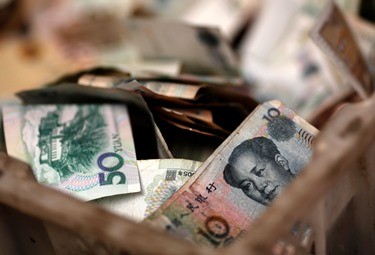The rise in the number of offshore yuan centers, which have multiplied in just two years, has helped investors do business with the Chinese mainland, especially in their currency transactions, the China Daily reported.
The report said that the use of yuan in global finance and trade was facilitated by offshore yuan centers in Asian cities such as Bangkok, Singapore, and Kuala Lumpur, and in other cities such as London, Zurich and Nairobi. Centers are also planned to be set up in Seoul and Qatar.
According to the report, there are now a total of 14 offshore yuan centers worldwide, with six of them located in Asia. In Asia, aside from Hong Kong and Macao, the centers can be found in Singapore, Taipei, Bangkok and Kuala Lumpur. The plan for the Seoul yuan center is underway.
The Asia Securities Industry & Financial Markets Association reported that the yuan foreign exchange transactions daily turnover in Singapore doubled to $31 billion after it was named a yuan center in 2013.
The report said that the yuan centers send yuan back to the mainland based on quotas granted under the Renminbi Qualified Foreign Institutional Investor program.
The Fitch Ratings data showed Hong Kong's quota is 270 billion yuan ($43.5 billion), Taiwan's quota is 80 billion yuan, and Singapore can send back 50 billion yuan.
During the 1990s, foreigners in the Chinese mainland rely on foreign exchange certificates since they have no legal access to yuan, but the system was phase out in 1997 as China worked to make its currency more accessible.
The China Daily said that there are now more than 1.8 trillion yuan deposited in bank accounts around the world and the yuan is among the currencies used as international reserve by the International Monetary Fund.


